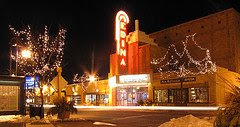Book 17 (Marcella & Reed)
Important Quotes
“If the brazen suitors cut me down in the palace— / off guard—and carve apart my father’s whole estate, / I’d rather you yourself, or one of his friends here, / keep those gifts and get some pleasure from them. / But if I can bring down slaughter on that crew, / you send the gifts to my house—we’ll share the joy” (17.83-88).
This quote is important because it shows Telemachus’ way of thinking things out before he acts. This is a trait he got from his father, the great tactician, and it has helped him squeeze his way out of many sticky situations. The quote also shows examples of several Homeric traits, such as the use of writer’s dashes (—) to add flavor to the story, and foreshadowing to hint at what’s coming.
“No, there is no man like Odysseus in command / to drive this curse from the house. Dear god, / if only Odysseus came back home to native soil now, / he and his son would avenge the outrage of these men-like that!” (17.558-601).
This quote comes form Penelope and she is declaring how she wishes that Odysseus were back home to ward off the suitors. This passage contains the Homeric style of foreshadowing, because in the end of the poem, this is exactly what happens; Odysseus and Telemachus join together to kill the suitors. Se describes, coincidentally, almost exactly what actually occurs later on.
“Give me a morsel friend. You’re hardly the worst / Achean here, it seems. The noblest one, in fact. / You look like a king to me! / So you should give a bigger crust than the rest / and I will sing your praises all across the earth” (17.458-462).
This quote is spoken by Odysseus and it is when he is asking for food from the suitor, Antinous. It is an important quote because it is a key moment when Odysseus interacts with Antinous. The wording of the quote shows Odysseus’ respect and kindness toward the suitors, or at least his skill in pretending to be caring. This quote escalates into the fight between Antinous and Odysseus, which also makes it very important. After being asked this, Antinous is pushed over the edge and he ends up spewing cruel words at Odysseus and eventually throwing a stool at his back.
Elements of the Monomyth
Test/ Ordeal
In Book 17, Odysseus spends his time disguised as a beggar. This is an ordeal because he has to keep his disguise and pretend that he isn’t a king. One example of Odysseus’ disguise causing him difficulty when he is walking into town. A swineherd starts insulting him, and Odysseus is furious. He thinks to himself, “Should he wheel with is staff and beat the scoundrel senseless?—/or hoist him by the midriff, split his skull on the rocks? /He steeled himself instead, his mind in full control” (17.258-60). Odysseus is proving his strength by not speaking up when provoked. Another time Odysseus chooses not to stand up for himself is when he is in the palace, begging food from the suitors, and Antinous throws a stool at his back. “With that/ he seized the stool and hurled it—Square in the back/ it struck Odysseus, just under the right shoulder/ but he stood up against it—steady as a rock” (17.509-12). It must have hurt Odysseus a lot, but he didn’t say anything because he didn’t want to provoke Antinous any more than he already had. Luckily, the rest of the suitors were ashamed that Antinous would harm an innocent beggar, and reprimanded him. Despite his disguise being disdained by many people throughout the book, Odysseus stays strong and doesn’t fight back, which was a great ordeal that he survived through.
Sacrifice/ Betrayal
In book 17, Odysseus returns home to Ithaca, dressed as a beggar. None of the townspeople recognize him due to the disguise, but his old dog does. The narrator explains, “But the moment he sensed Odysseus standing by / he thumped his tail, nuzzling low, and his ears dropped, / though he had no strength to drag himself an inch / toward his master” (17.330-333). Odysseus recognizes his old pal too, but he is unwilling to give up his disguise, so he doesn’t express emotion. The narrator describes, “Odysseus glanced to the side / and flicked away a tear, hiding it from Eumaeus, / diverting his friend in a hasty, offhand way…” (17.333-335). Sadly, after recognizing his master the weak, old dog dies. The narrator tells, “But the dark shadow of death closed down on Argos’ eyes / the instant he saw Odysseus, twenty years away” (17.359-360). This section of the book resembles the sacrifice stage in the hero quest. Odysseus must sacrifice his beloved friend to continue his quest, because after crossing paths with his old dog, he had to continue on and pay no attention to him, in order to keep his disguise.
Book 17 (Jenni & Maggie)
Oooops!!
Friday, October 3, 2008
Subscribe to:
Post Comments (Atom)

No comments:
Post a Comment